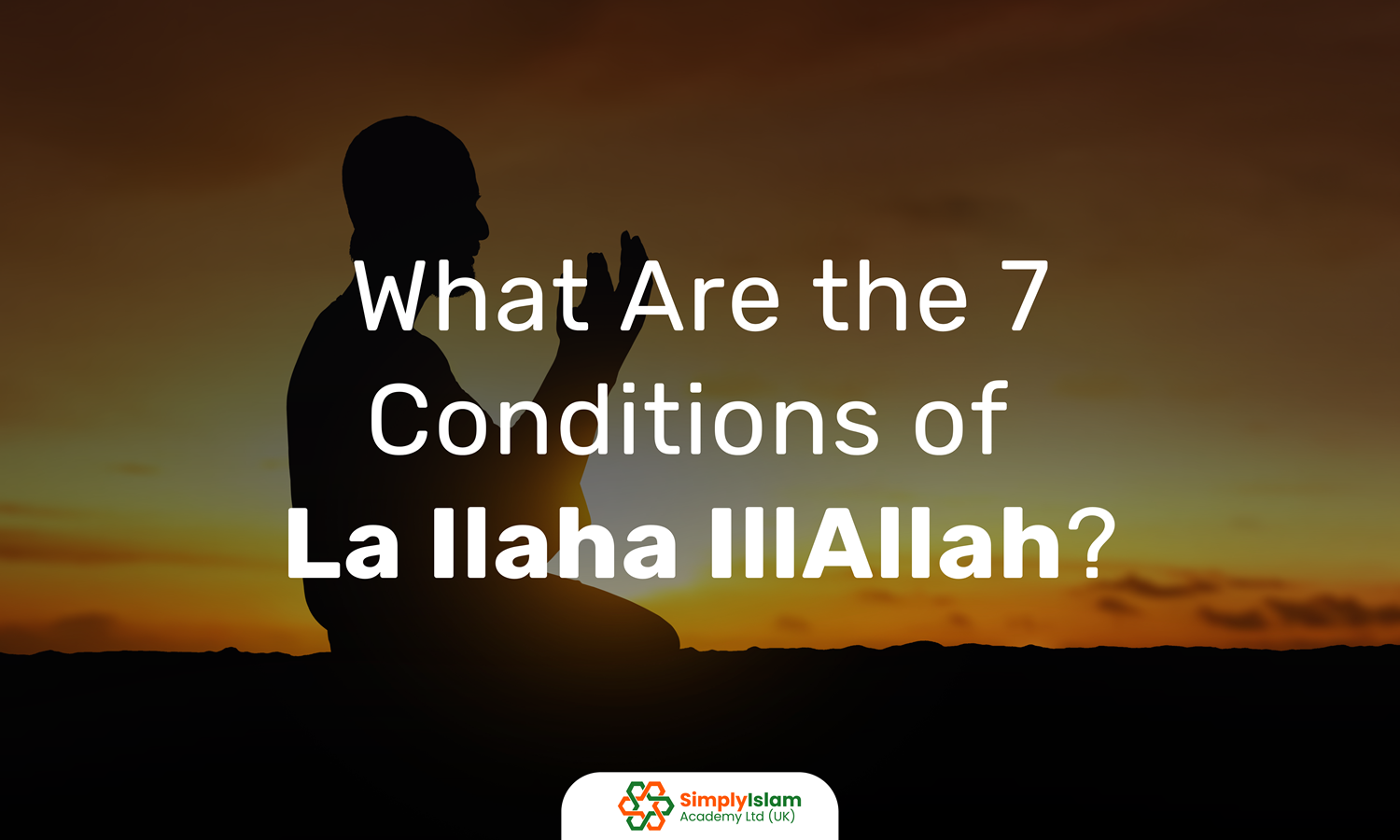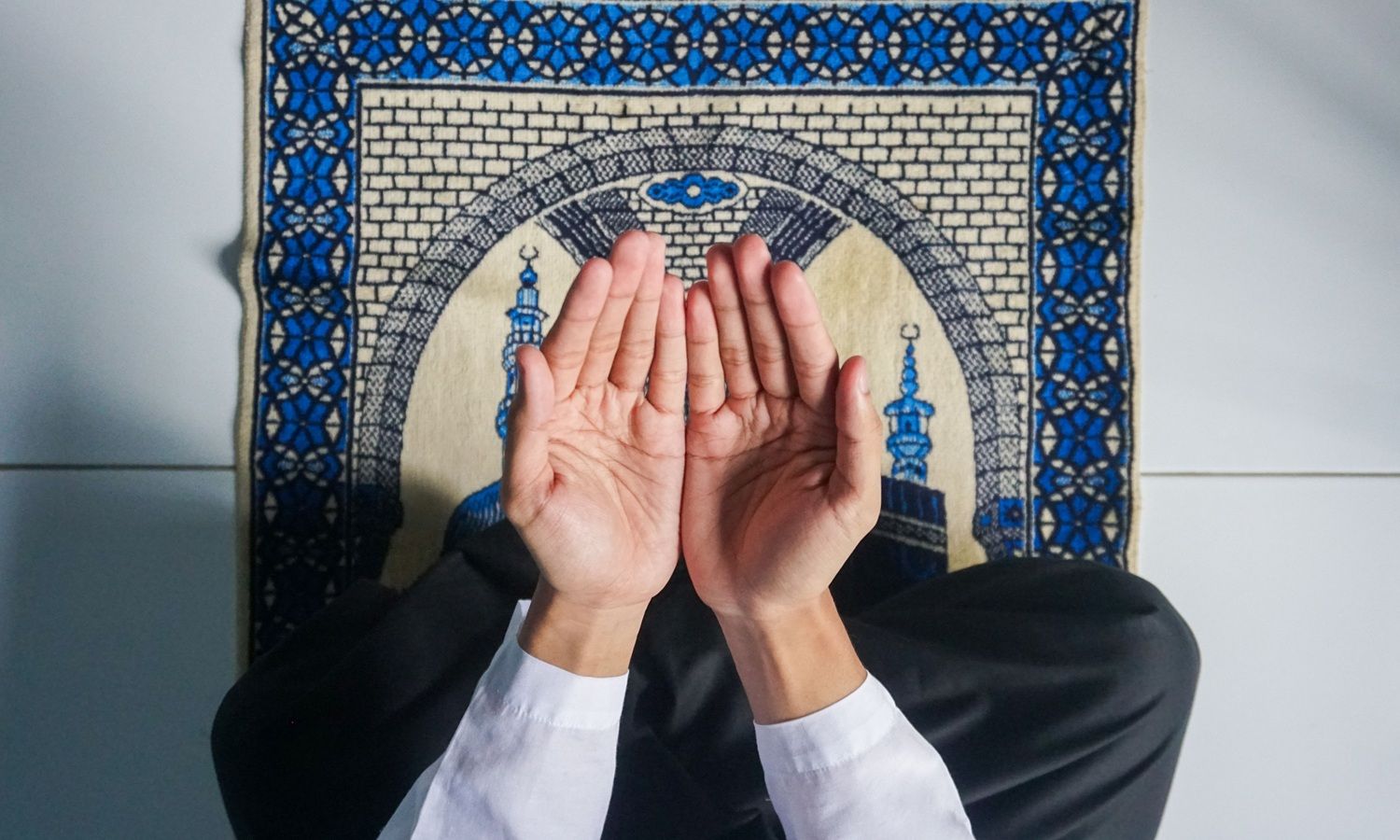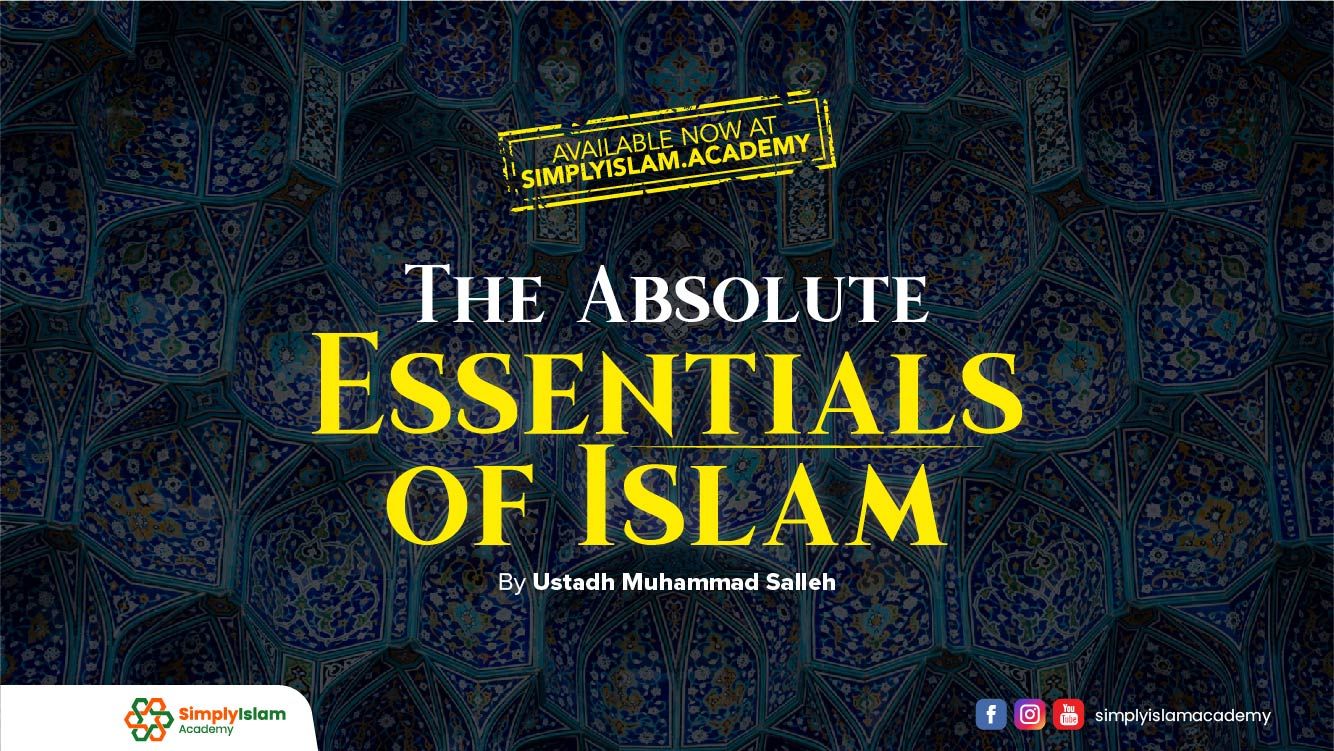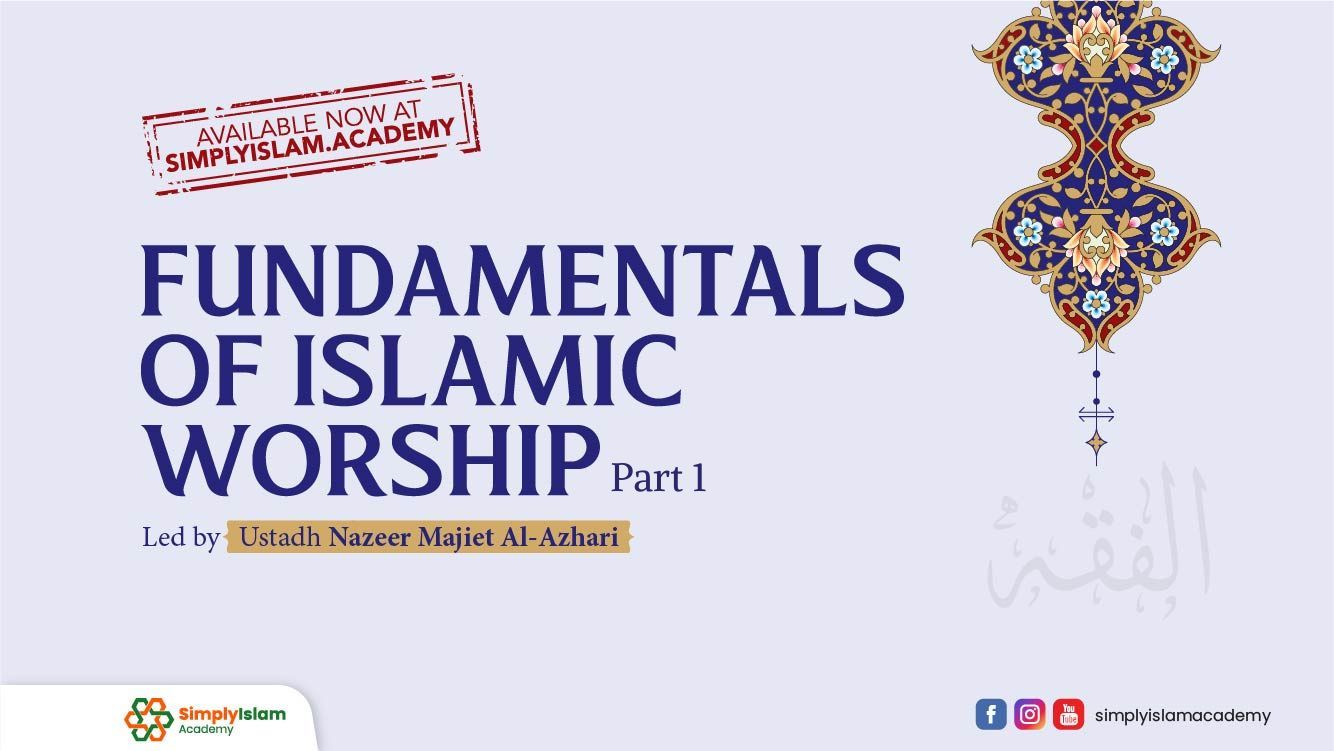-
Spirituality
What Are the 7 Conditions of La Ilaha Illallah?
-
Lily Syahirah
-
06 Apr 2025

Introduction
All Muslims know the dhikr ‘La ilaha ilallah’, but not many know the 7 conditions of La ilaha ilallah and what that actually means.
The dhikr La ilaha illallah (لَا إِلَٰهَ إِلَّا ٱللَّٰهُ) is one of the many dhikr or utterances of remembrance of Allah Almighty which brings a deeper meaning related to the core of a Muslim’s belief system.
In essence, La ilaha ilallah means “There is no deity worthy of worship except Allah”.
This dhikr is also recited in the first part of the Shahada, which is a declaration to be recited by every new revert becoming a new Muslim. For one to become a Muslim, they must recite this Shahada, which is as follows:
لَا إِلَٰهَ إِلَّا ٱللَّٰهُ مُحَمَّدٌ رَسُولُ ٱللَّٰهِ
"La Ilaha Illallah Muhammadur Rasulullah"
"There is no god but Allah, and Muhammad is the messenger of Allah."
According to classical Muslims scholars, particularly from the Ahlus Sunnah wal Jama’ah tradition, there are 7 essential conditions of La Ilaha Illallah that must be fulfilled for it to be valid and accepted by Allah Almighty.
What is meant by the conditions is to understand, exemplify and embody the deeper meaning behind it instead of uttering the dhikr at face value.
Throughout this article, we will walk through each of the 7 conditions of La ilaha ilallah according to the Qur’anic verses, hadiths, and scholarly insights.
This is so that we may reclaim our faith and live our lives as Muslims to the fullest in His Divine Pleasure and Blessings, Insha’Allah.

7 Conditions of La Ilaha Illallah
The 7 conditions of La Ilaha Illallah are clear and straightforward. They are based on the holistic teachings of Islam found in the Qur’an and Sunnah.
Let’s go through each of these seven pillars that uphold the meaning of La ilaha illallah in the life of a believer.
However, it is important to note that totally relying on Allah Almighty does not disregard our actionable steps to achieve our own dreams and wants. If we truly have a goal, we should still work for it whilst relying on Allah Almighty on the outcome itself.

1. Knowledge (Ilm – علم)
The first condition is knowledge, and the first step towards achieving this condition is knowing what the phrase La ilaha illallah actually means.
It is not just about understanding the literal translation, but to truly understand its essence and how to embody the meaning in daily life.
The phrase ‘La ilaha ilallah’ involves two main parts:
- Negation: La ilaha – there is no god or deity worthy of worship.
- Affirmation: Illallah – except Allah Almighty alone.
This knowledge is the starting point of monotheism or Tawheed. Without understanding this, one could fall into shirk (associating partners with Allah Almighty) while still verbally professing the Shahada.
As we know, shirk is not only limited to the literal act of associating partners with Allah Almighty alone, but it comes in two ways:
1. Major Shirk (Shirk al-Akbar)
This is the literal form of shirk involves assigning divine attributes or powers to others besides Allah Almighty. Examples include:
It is a serious violation that removes a person from the fold of Islam.
Worshipping other deities: Engaging in rituals or prayers directed to gods, idols, or celestial bodies.
Believing in multiple creators: Holding the belief that there are other beings who share in the creation or management of the universe alongside Allah Almighty.
2. Minor Shirk (Shirk al-Asghar)
This type of shirk refers to actions or beliefs that may not result in outright polytheism but still compromise the purity of monotheistic worship. Examples include:
Riya’ (showing off): Performing religious acts to gain admiration from others rather than seeking Allah's Divine Pleasure.
Attributing success to objects or symbols: Believing that amulets, charms, or other items inherently bring good luck or ward off evil, rather than recognizing Allah as the sole source of benefit and harm.
Qur’an: “So know (O Muhammad), that there is no deity except Allah…” — [Surah Muhammad 47:19]
Hadith: The Prophet ﷺ said, “Whoever dies while knowing that there is no deity worthy of worship except Allah shall enter Paradise.” — [Sahih Muslim]
Thus, knowledge (‘ilm) distinguishes true faith from blind imitation or worse, shirk..
Many people say the Shahada without realizing its weight—this is what this condition is about.
Learn from the Best Muslim Scholars
Fiqh
Aqidah
Qur'an
Sirah
Write your awesome label here.
Fundamentals of Islamic Worship (Part 1)
Write your awesome label here.
Key Concepts of Fiqh & Usul Al-Fiqh (Part 1)
Write your awesome label here.
Key Questions to Related to Fasting and Ramadan
Write your awesome label here.
The Absolute Essentials of Islam
Write your awesome label here.
The Islamic Creed
Write your awesome label here.
Tafsir Al-Fatiha
Write your awesome label here.
Tafsir Surah Yasin
Write your awesome label here.
Tafsir and Reflection on the Qur'an
Write your awesome label here.
The Sublime Qualities and Portrait of Muhammad ﷺ (Part 1)
Write your awesome label here.
Seerah Retreat (Part 1)
Write your awesome label here.
Sacred Journeys: Reflections upon the Abyssinian and Madinan Migrations (Hijrah)

2. Certainty (Yaqin – يقين)
One of the conditions of La ilaha ilallah is certainty, which means total conviction in the truth of La ilaha illallah with no room for doubt.
As much as we say we believe in this testimony with our hearts, what is really meant behind ‘certainty’ is to omit any sense of doubt in any aspect of Allah’s Oneness and Power.
Qur’an: “The believers are only those who have believed in Allah and His Messenger and then doubt not but strive with their wealth and their lives…” — [Surah Al-Hujurat 49:15]
Hadith: The Prophet ﷺ said, “I bear witness that there is no god but Allah and that I am the Messenger of Allah. No servant meets Allah with these two testimonies, not having doubted them, but will enter Paradise.” — [Sahih Muslim]
In Islamic spirituality, there are three levels of Yaqin, which are:
1. ʿIlm al-Yaqin – Knowledge of Certainty
This initial level is achieved through learning and intellectual understanding, as mentioned in the first condition of La ilaha ilallah. This corresponds to a belief grounded in study, reflection, and acceptance of religious teachings.
2. ʿAyn al-Yaqin – Eye of Certainty
At this stage, certainty arises from direct observation or experience. This level involves witnessing the manifestations of divine truth, leading to a more profound and personal conviction.
3. Ḥaqq al-Yaqin – Truth of Certainty
This highest level signifies complete immersion and unity with the truth. It represents a state where faith transcends knowledge and observation, becoming an intrinsic part of one's being.
This level of certainty (yaqin) elevates the believer’s trust in Allah Almighty, especially during hardships and their submission in times of ease.

3. Acceptance (Qabul – قبول)
The next condition of La ilaha ilallah is Acceptance. What does it mean to accept?
It means to receive and embrace La ilaha illallah and all its consequences willingly. This condition is about internal acceptance in the heart, whether things go our way or the other way round.
Acceptance also means agreeing with everything Allah Almighty has commanded and forbade in the Qur’an and Sunnah with total belief and without skepticism.
Qur’an: “Say, ‘It is the truth from your Lord.’ Then whoever wills, let him believe; and whoever wills, let him disbelieve.” — [Surah Al-Kahf 18:29]
Example: The Quraysh in Mecca recognized the truth of the Prophet ﷺ but rejected it due to fear of losing status, power, and social dominance.
That is why being a Muslim is not something we should take lightly. When we utter the Shahada, the phrase ‘La ilaha ilallah’, we are also accepting accountability, the Hereafter, and the Sunnatullah.

Compliance (Inqiyaad – انقياد)
Whatever that you truly believe in your heart and soul will surely manifest in the exterior. When the heart is purified and full of love, good actions will follow, Insha’Allah.
What this condition means is to live according to the teachings of La ilaha illallah—submitting to Allah Almighty through actions.
This is about walking the talk. Obedience to Allah Almighty in all aspects of life is a requirement for the Shahada to be complete.
Qur’an: “And turn in repentance and obedience with true faith to your Lord, and submit to Him…” — [Surah Az-Zumar 39:54]
The question is, how do we comply through the exterior part of our being? The answer lies in this Qur’anic verse:
قُلْ إِن كُنتُمْ تُحِبُّونَ ٱللَّهَ فَٱتَّبِعُونِى يُحْبِبْكُمُ ٱللَّهُ وَيَغْفِرْ لَكُمْ ذُنُوبَكُمْ ۗ وَٱللَّهُ غَفُورٌۭ رَّحِيمٌۭ
Say, ‘If you love God, follow me, and God will love you and forgive you your sins; God is most forgiving, most merciful.’ (Qur’an, 3:31)
Following the Sunnah of our beloved Prophet Muhammad ﷺ is one of the ways we can prove our love for Allah Almighty. To truly perfect our manners and life itself, to please Allah Almighty.
Submission (Inqiyaad) doesn’t mean we never sin; it means our overall direction is toward His Servitude, to live for the sake of Allah Almighty and His Beloved Messenger ﷺ.
Allah Almighty knows the nature of His Creation, so as long as we sincerely repent and turn back to him, Allah Almighty will Forgive, Insha’Allah.

5. Truthfulness (Sidq – صدق)
Truthfulness is about sincerity in belief and not merely proclaiming La ilaha illallah for social, political, or economic gain.
This is one of the critical conditions of La ilaha ilallah. It is worse to utter this phrase for the sake of self-interest than to blindly follow.
One of the examples that portray the hypocrisy of the people during the time of the Prophet ﷺ was that they verbally recited the Shahada but were inwardly disbelievers.
Qur’an: “When the hypocrites come to you, [O Muhammad], they say, ‘We testify that you are the Messenger of Allah.’ And Allah knows that you are His Messenger, and Allah testifies that the hypocrites are liars.” — [Surah Al-Munafiqun 63:1]
Hadith: The Prophet ﷺ said, “There is no one who bears witness truthfully that there is no god but Allah, and that Muhammad is the Messenger of Allah, but Allah will forbid the Fire for him.” — [Sahih Muslim]
The Prophet Muhammad ﷺ said:
“There are four signs that make someone a pure hypocrite, and whoever has them has a characteristic of hypocrisy until he abandons it:
“When he speaks, he lies.
When he makes a promise, he breaks it.
When he is entrusted, he betrays the trust.
When he disputes, he behaves in a very imprudent, evil, and insulting manner.”
Beware of the traits and signs of hyporisy and may Allah Almighty keep us away from them, Amin.
Learn from the Best Muslim Scholars
Fiqh
Aqidah
Qur'an
Sirah
Write your awesome label here.
Fundamentals of Islamic Worship (Part 1)
Write your awesome label here.
Key Concepts of Fiqh & Usul Al-Fiqh (Part 1)
Write your awesome label here.
Key Questions to Related to Fasting and Ramadan
Write your awesome label here.
The Absolute Essentials of Islam
Write your awesome label here.
The Islamic Creed
Write your awesome label here.
Tafsir Al-Fatiha
Write your awesome label here.
Tafsir Surah Yasin
Write your awesome label here.
Tafsir and Reflection on the Qur'an
Write your awesome label here.
The Sublime Qualities and Portrait of Muhammad ﷺ (Part 1)
Write your awesome label here.
Seerah Retreat (Part 1)
Write your awesome label here.
Sacred Journeys: Reflections upon the Abyssinian and Madinan Migrations (Hijrah)

6. Sincerity (Ikhlas – إخلاص)
Ikhlas, or sincerity, is the soul of worship. Without sincerity and rectification of our intentions, our actions and words almost seem meaningless.
Now, what does being sincere mean? It means doing everything purely for the sake of Allah Almighty, free from showing off (riya), seeking praise, or worldly rewards.
What matters most is Allah’s Divine Pleasure, Blessings and Mercy, even if people seem to dislike us.
This applies to all our deeds, especially spiritual practices and everything we do in our daily life.
Qur’an: “And they were not commanded except to worship Allah, [being] sincere to Him in religion, inclining to truth…” — [Surah Al-Bayyinah 98:5]
Hadith: The Prophet ﷺ said, “Allah has forbidden the Fire for anyone who says, ‘There is no god but Allah,’ seeking thereby the Face of Allah.” — [Sahih al-Bukhari]
True sincerity purifies the heart and aligns all intentions with the pleasure of Allah Almighty, making our good deeds count in the Hereafter.

7. Love (Mahabbah – محبة)
The final condition of La ilaha ilallah is love. It doesn’t mean just loving the phrase itself, but loving Allah Almighty, His Messenger ﷺ, and everything that our faith represents.
While it is not a state that Muslims usually find themselves in due to the distractions and temptations life has to offer, this kind of love must override all other attachments, including love for wealth and status.
Qur’an: “But those who believe are stronger in love for Allah…” — [Surah Al-Baqarah 2:165]
Hadith: The Prophet ﷺ said, “None of you truly believes until I am more beloved to him than his father, his child, and all of mankind.” — [Sahih al-Bukhari]
Love is the emotional engine behind obedience, sacrifice, and devotion. It’s what makes worship joyful rather than burdensome.
To improve or enhance your love for Allah Almighty and His Beloved Messenger ﷺ by understanding the Mercy of Allah, watch our online Islamic lectures on Islamic spirituality here.

SAVE AND LEARN MORE AS YOU BECOME OUR VALUED MEMBER.
Final Words on Conditions of La Ilaha Illallah
Understanding the 7 conditions of La Ilaha Illallah gives depth to our declaration of faith so we can finally live by what we believe in.
These conditions are not just theological ideas in theory, but they are foundational principles that guide a Muslim’s heart, mind, and actions to live life in His Servitude, Insha’Allah.
From knowledge to love, each condition builds on the previous one, culminating in a holistic, sincere, and devotional relationship with Allah The Most Merciful.
To learn more on how you can enhance your relationship with Allah Almighty by understanding His Divine Mercy and Compassion, watch our online Islalmic courses as low as $5 today.
When we say La ilaha illallah, we are committing to a way of life, a life of submission, love, sincerity, and spiritual growth. May Allah make us among those who live by this testimony and die upon it, Amin.
Subscribe to Our Newsletter
Stay updated on our free courses, promotions, events and more!
Thank you!
FAQs
What is the concept of La ilaha illallah?
La ilaha illallah means “There is no deity worthy of worship except Allah.” It is the essence of Tawhid and forms the first part of the Shahada. It negates all forms of false worship and affirms that only Allah Almighty deserves to be worshipped.
What is the difference between "Acceptance (Qabul)" and "Submission (Inqiyaad)"?
- Acceptance (Qabul) is internal belief. It means the heart and soul acknowledges and accepts the truth of Islam.
- Submission (Inqiyaad) is external belief. It means the limbs act upon that which is manifested by the acceptance in our hearts and souls.
Think of acceptance as saying “Yes, I believe this,” and submission as showing “Yes, I live by this.”
How powerful is La Ilaha Illallah?
La ilaha illallah is the most powerful phrase a human being can utter. It:
- Enters a person into Islam.
- Wipes out sins when said sincerely.
- Is the heaviest statement on the Day of Judgment.
- Offers protection from Hellfire.
- Strengthens the soul and guides life’s purpose.
Related Courses
About Us
SimplyIslam Academy, a subsidiary of SimplyIslam.sg, is an online Islamic education centre, delivering quality Islamic courses via online since early 2021.
The online Islamic school provides indispensable learning on the various sciences of Islam, covering Qur’an, Hadith, Sirah, Fiqh, Tasawwuf, and others.
The online Islamic school provides indispensable learning on the various sciences of Islam, covering Qur’an, Hadith, Sirah, Fiqh, Tasawwuf, and others.
Follow us
Useful Links:
Thank you!

Learn Anytime, Anywhere
Copyright © SimplyIslam Academy. All Rights Reserved.
Try Our Free Online Islamic Classes Today
Enter your email and we’ll send you notifications on our free classes.
Thank you for subscribing to our newsletter!
Try Our Free Online Islamic Classes Today
Enter your email and we’ll send you notifications on our free classes.
Thank you for subscribing to our newsletter!

